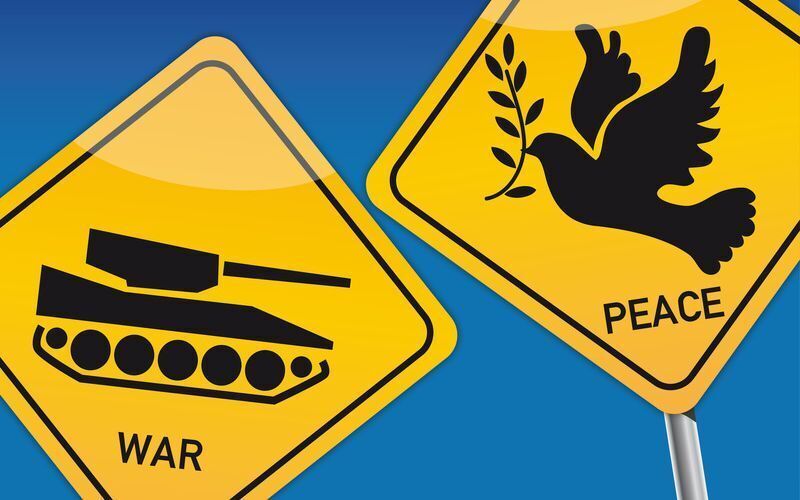Why ‘Triplomacy’ is the New Diplomacy
by Deborah Winslow Nutter,
Special to CNN
Editor’s note: Deborah Winslow Nutter is Senior Associate Dean at The Fletcher School of Law and Diplomacy at Tufts University. The views expressed are her own.
Diplomacy is dead, at least according to New York Timescolumnist Roger Cohen writing earlier this year. His claim certainly sparked a great deal of discussion. But as someone who studies and teaches about foreign policy leaders, I would argue that the question is not so much whether diplomacy is dead, but how effectively diplomats – with their tradition of solving problems peacefully, creatively and innovatively – can collaborate with a growing number of governmental and non-governmental actors in an increasingly complex world.
I began my career as a political scientist specializing in great power relations at a time when two diplomats could still solve problems between their countries. Multi-lateral diplomacy – conferences, summits and concerts – was merely an extension of this with more diplomats and more countries involved, and the Cold War era was replete with bilateral and multilateral diplomacy – the SALT treaties, for example. The ending of that era involved classical cases of bilateral diplomacy between leaders, such as between Gorbachev and Reagan, as well as multilateral diplomacy, such as the agreement on the reunification of Germany, together bringing about monumental shifts in our international landscape.
But a number of factors these days make it difficult to undertake old-fashioned diplomacy. My colleague, Daniel Drezner, says the opening up of internal politics throughout the world has made doing diplomacy today more complex. You can add to this the rise of non-state actors in international security issues, the effect current American domestic politics has on the ability of the United States to punch its weight internationally, and the multiplication and amplification of voices outside governments. All this means that it is becoming increasingly difficult to solve global issues state-to-state.
After all, it is not just diplomats that now engage in diplomacy; business and non-profit leaders are getting in on the act as well. And the diplomacy required of these sectors influences the diplomacy that can be done by governments. Even within governments, there are an increasing number of actors whose interests come to bear upon the choices diplomats face and the outcomes they can achieve. Traditional diplomats are joined by, among others, representatives of security, intelligence, development, human rights, environmental, and regulatory agencies.
What should our future leaders be focusing on? For more than 10 years, I have taught a course on historic foreign policy leaders. My students work in various ministries, businesses, international NGOs, and international institutions. And in teaching about leaders such as Woodrow Wilson, Winston Churchill, Mao Zedong, Mikhail Gorbachev and Nelson Mandela I have tried to underscore the monumental shifts in the kind of knowledge, skills and quality of mind that leaders today must possess.
I’ve tried to help students on how to think to be successful in this environment, and how best to grasp the concurrent, intersecting, and constantly evolving relationships between different countries, sectors, and fields. I’ve found the model of the armillary – a sophisticated (and yes, old) astronomical model with solid rings that encircle a sphere – to be helpful. As this analogy makes clear, although the rings move in various directions, when one moves, so do all of them.
So, is diplomacy dead? No, but perhaps it could do with a name change – think triplomacy. Governments today can no longer rely solely on “diplomats” in the traditional sense. They need to harness the participation of multiple government agencies, private industries, NGOs and international institutions – specialists from various fields of expertise who as a group view issues through a triplomatic lens and who can collaborate in cross-cutting alliances.
Take, for example, the changing international energy landscape – an issue that has serious implications for the environment and for security. The shift in U.S. energy production and use patterns will not only affect the energy industry, but will also have significant impact on the environment, North American and global. As the United States takes steps toward energy independence, it will also raise questions about human and national security around the world. Would more energy security lead to more environmental damage? Would energy independence lessen the U.S. commitment to protecting international sea lanes? If resource-poor China continues to seek energy supplies from around the world, would it, in the face of a potential U.S. withdrawal, take the opportunity to become dominant in the Indian Ocean?
Thinking triplomatically will help enable today’s leaders to deal with the changing energy landscape, and other issues of global importance, from a more rounded perspective. Indeed, as a specialist in nuclear energy issues recently commented to me, diplomacy 2.0 may, in fact, be triplomacy.
This article was originally posted on Global Public Square blog.

